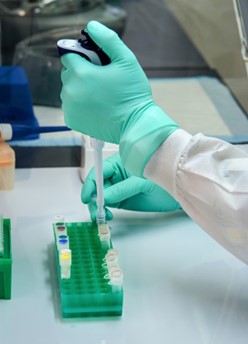
The field of personalized medicine is revolutionizing the healthcare landscape by customizing treatments to individual patients based on their genetic makeup, lifestyle, and environmental factors. This approach marks a significant shift from the traditional one-size-fits-all model, offering the potential for more effective, targeted therapies with fewer side effects. At the core of this transformation is innovation in drug development, where advanced technologies and methodologies are driving remarkable progress. Life science executive recruiters are actively seeking top talent to lead these advancements, ensuring the continued growth and success of personalized medicine in improving patient outcomes.
Personalized medicine, also known as precision medicine, leverages data from genomics, proteomics, and metabolomics to customize healthcare strategies. The aim is to ensure that treatments are effective for each individual by understanding the underlying biological mechanisms of diseases. This approach has been particularly impactful in oncology, where targeted therapies and immunotherapies have significantly improved outcomes for patients with specific genetic profiles.
The rapid advancements in biotechnology and computational sciences have catalyzed innovations in drug development for personalized medicine. Below are some of the key areas where breakthroughs are occurring:
NGS technology has been a cornerstone of personalized medicine. It enables the rapid sequencing of entire genomes, providing detailed insights into genetic variations that influence disease susceptibility and drug response. By identifying biomarkers associated with specific conditions, researchers can develop drugs that target these genetic anomalies.
For example, BRCA1 and BRCA2 gene mutations have been linked to an increased risk of breast and ovarian cancers. Drugs like PARP inhibitors specifically target cancer cells with these mutations, sparing healthy cells and reducing adverse effects.
Artificial intelligence and machine learning are transforming the drug discovery process by analyzing large datasets to identify potential drug candidates and predict their efficacy. These technologies significantly reduce the time and cost typically associated with traditional drug development. AI-powered platforms can simulate how drugs interact with specific genetic profiles, enabling researchers to prioritize the most promising compounds. For example, Insilico Medicine leverages AI to design molecules with high precision, streamlining the transition from discovery to clinical trials. Life science recruiters are increasingly seeking professionals with expertise in these cutting-edge technologies to help drive innovation and accelerate drug development.
CRISPR-Cas9 technology has opened new avenues for developing personalized therapies by allowing precise editing of genes. This innovation is particularly valuable for treating genetic disorders and cancers.
In drug development, CRISPR can be used to create disease models for testing potential treatments. Additionally, companies like Editas Medicine and CRISPR Therapeutics are exploring gene-editing therapies to correct mutations directly in patients, offering a potential cure rather than symptom management.
Pharmacogenomics studies how genetic variations influence individual responses to drugs. This field has led to the development of pharmacogenomic tests that guide drug prescriptions, ensuring optimal efficacy and minimizing side effects.
For example, patients with certain CYP450 gene variants metabolize drugs differently. By identifying these variants, doctors can adjust dosages or select alternative treatments, as seen with warfarin, a blood thinner with a narrow therapeutic index.
The success of mRNA vaccines for COVID-19 has highlighted the potential of RNA-based therapies. These therapies use messenger RNA to instruct cells to produce specific proteins, enabling precise targeting of diseases.
In personalized medicine, RNA-based drugs are being developed for rare genetic disorders and cancers. Companies like Moderna and BioNTech are at the forefront of this innovation, expanding the application of RNA technology beyond vaccines.
Organoids—miniaturized and simplified versions of organs grown in vitro—offer a promising tool for personalized drug testing. They allow researchers to study disease progression and drug response in a controlled environment that closely mimics human physiology.
Lab-on-a-chip devices integrate multiple laboratory processes into a single microchip. These devices enable high-throughput screening of drug candidates on patient-derived cells, providing valuable insights into personalized treatment strategies.

While the potential of personalized medicine is immense, several challenges remain in the drug development process:
The complexity of developing personalized therapies often leads to higher costs and extended timelines. Advanced technologies, such as NGS and CRISPR, require significant investment, which can make treatments expensive and limit accessibility.
Regulatory frameworks have yet to fully adapt to the nuances of personalized medicine. The approval process for targeted therapies and companion diagnostics can be cumbersome, delaying their availability to patients.
The reliance on genetic and personal data raises concerns about privacy and security. Ensuring that sensitive information is protected while enabling data sharing for research purposes is a delicate balance.
Personalized medicine has the potential to exacerbate healthcare disparities if access is limited to those who can afford it. Efforts to make these therapies widely available and inclusive are crucial for their success.
The future of personalized medicine is bright, with several trends shaping its trajectory:

Combining genomics, proteomics, metabolomics, and other omics data will provide a more comprehensive understanding of diseases. This integrative approach will enhance drug development and lead to more precise therapies.
Wearable devices that monitor physiological parameters in real time will enable continuous health assessment and early intervention. These technologies will complement personalized therapies by providing valuable feedback on treatment efficacy.
Collaborative efforts between academia, industry, and regulatory bodies will accelerate innovation and streamline the drug development process. Initiatives like the All of Us Research Program aim to create diverse datasets that reflect global populations.
While personalized medicine has primarily focused on rare diseases and cancer, advances in technology will enable its application to more common conditions like cardiovascular diseases and diabetes.
The future of personalized medicine is reshaping the way we approach healthcare, offering the promise of more effective and safer treatments. Innovations in drug development, driven by technologies like NGS, AI, CRISPR, and RNA-based therapies, are at the forefront of this revolution. While challenges such as cost, regulation, and equity must be addressed, the potential to improve patient outcomes and transform lives is undeniable. As we continue to explore the boundaries of science and technology, personalized medicine will play a pivotal role in creating a healthier, more equitable world.